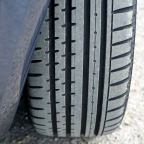
Financing a new car
In case you are looking to buy a used car, you will quickly realize that financing a used car is much more complicated than financing a brand new car. However, if you are facing difficulties, below are some tips on how to finance a used car.
1. Find out your credit score before visiting the dealership
First of all, you need to understand that financing a car isn't the same as taking out a mortgage. You can obtain a car loan even with a poor credit rating. However, you will incur a higher interest rate in case you have little to no credit. If a dealership states that it has a low-interest rate, then this often applies to an individual with a high credit score.
2. Get financing quotes
Ensure that you receive quotes from all the dealerships or companies that are willing to offer you a car loan before settling on one. You should treat searching for a car loan company like shopping for any other major purchase in your life. Compare how much each company is ready to loan you, the duration of their terms, and their respective interest rates. You should ensure that you are receiving the most favorable deal for you prior to signing any contract.
3. Ensure that the term is as short as possible
Even though you will be required to pay more per month when you apply for a shorter loan term, in the long run, you will end up making significant savings. This is because when you pay off your loan faster, you get to pay lower interest over time. While stretching your loan payments for five years or more can seem more appealing, you will end up paying a lot more since your interest increases. In addition, you are likely to end up with a car whose value is way below the total price by the time you are done paying off the loan.
4. Make a bigger downpayment
One of the best advice you'll get when financing a car is that you are better off putting a deposit of 20% or more. When you make a higher downpayment, this amount will be removed from your initial loan. Not only will doing this lower your payments, but it will also influence your interest rate. To enjoy more long-term savings, it is wise to save up beforehand and make a downpayment of 20% or more.
5. Pay in cash for the other fees
This includes fees such as documentation fees, dealership fees, sales tax, and other additional fees involved when buying a car. Instead of rolling them into your loan, you should consider paying these fees and taxes in cash. Even though most dealerships will be more than willing to include these fees in your loan, or even pay for the sales tax themselves, this only adds up to your total costs. You will end up paying more interest on the amount added for the sales tax.
6. Obtain a non-recourse loan
In the event that you default on your loan, then the financing company will be obligated to repossess your vehicle. At times, the value of the car may less than whatever amount is left on the loan. In this case, you are left with a deficit. Getting a non-recourse loan helps to mitigate against this kind of situation. When it comes to a non-recourse loan, if you default, you aren't required to settle the difference or present an asset that has enough value to cover the loss.
7. Consider your timing
Car loan interest rates tend to change depending on economic conditions. Thus, it is wise to first find out when the interest rates are the lowest for your preferred financing company. You also need to seek quotes from different times of the year. In case the dealership isn't selling as many cars as they'd want, they are more likely to offer you a better deal on interest rates.













